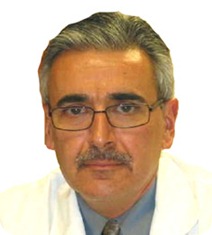Breast cancer recurrence is a major problem after treatment of localized breast cancer. The risk of recurrence depends on several factors including the stage of presentation and the biology of the disease.
If there is a recurrence, it usually occurs in the first 5 to 10 years and it is treatable but not curable. We typically give treatment after surgery to help reduce the risk of recurrence. That treatment can include chemotherapy, endocrine therapy and it also can include therapies directed against HER2, like Herceptin, for tumors that overexpress HER2.
What did your research show about the recurrence of breast cancer for obese people?
We confirmed a number of prior reports indicating that obesity at the time of breast cancer diagnosis was associated with a worse prognosis. Obesity is defined as having a body mass index of at least 30kg/m2.
There were several unique findings to our study that addressed deficiencies of prior studies.
- Firstly, all the women were healthy enough to participate in the clinical trial, and had normal heart, lung and liver function.
- Secondly, they all received state of the art chemotherapy, plus endocrine therapy if the tumor was endocrine receptor positive.
- Thirdly, like other studies, we found an association between being obese, and an increased risk of recurrence and breast cancer death. But, we found that this risk seemed to be restricted to patients who had estrogen receptor positive, HER2 negative breast cancer, which is the most common sub-type of breast cancer accounting for around 2/3rds of all breast cancers.
- Finally, the other unique thing about our study is that we evaluated the relationship between weight and recurrence throughout the entire continuum of weight. We found that increasing weight, even within the overweight but not obese range, was associated with an increased risk of recurrence.
Was this recurrence found for all types of breast cancer or only some?
Our research indicated that the increased risk of recurrence only seems to be present in a sub-group of women with estrogen receptor positive, HER2 negative breast cancer.
Did your research find a similar increased risk of recurrence for people who were overweight but not obese?
Increasing weight was associated with an increased risk of recurrence and death in patients with ER-positive, HER2 negative disease, even within the overweight range. There didn’t seem to be a specific threshold.
Do you think this association is a causative one, i.e. do you think the extra weight caused the increased risk of breast cancer recurrence? How can you test this?
It is biologically plausible that obesity can promote recurrence, specifically in women with ER-positive disease, for several reasons:
- We know that obesity is associated with higher estrogen levels and higher insulin levels. Both of those are known to be able to drive the growth of estrogen-dependent breast cancer.
- Obesity is associated with inflammation. Inflammation can also have a role in promoting breast cancer metastasis.
Although these mechanisms that we hypothesize may explain our results, our study wasn’t definitively designed to confirm these potential explanations.
How did your research into this topic originate?
Prior studies had shown an association between obesity and recurrence, but many of these had flaws which made it difficult to isolate the effect of obesity in promoting recurrence. By evaluating the association between body mass index and clinical outcomes in patients enrolled in clinical trials receiving state of the art therapy, we were able to address many of these deficiencies.
We found that the characteristics of the cancers diagnosed in the obese women were similar to the non-obese women, and that there was no significant difference in the delivery of chemotherapy or adherence to endocrine therapy in obese women compared with others.
What impact do you think your research will have on the advice given to breast cancer patients?
There is already an overwhelming body of evidence that maintaining a normal body weight, through a healthy diet and regular exercise, has health benefits. I think this study will provide additional motivation for women who are obese or overweight and who have been recently diagnosed with breast cancer to reevaluate their lifestyle, including their diet and exercise patterns, and to make some changes that would result in a healthier lifestyle.
Do you think patients who were obese at the time of diagnosis, but who subsequently lost weight, would be able to reduce their risk of breast cancer recurrence?
It remains to be seen whether weight loss will significantly reduce the rate of recurrence. There is some evidence from other studies which shows that dietary interventions resulting in moderate weight loss may reduce breast cancer recurrence. However, there haven’t been large enough studies to address this question adequately.
In our study, obesity seemed to be associated with a later recurrences of 3 or more years after diagnosis, so it is possible that weight reduction over this period could result in a lower risk of recurrence, but that remains to be proven.
Even if it isn’t proven, changing your lifestyle to maintain a healthy weight has other potential health benefits.
Do you have any plans for further research into this area?
There is a large scale trial that is being planned sponsored by the U.S. National Cancer Institute to evaluate an aggressive intervention to result in weight loss. That trial will be opening up within the next year.
We also plan to do additional studies to evaluate whether diet can produce metabolic changes expected to minimize the risk of recurrence.
About Dr. Joseph Sparano
 Dr. Sparano is Professor of Medicine & Women’s Health at the Albert Einstein College of Medicine, and Chair of the Eastern Cooperative Oncology Group Breast Cancer Committee.
Dr. Sparano is Professor of Medicine & Women’s Health at the Albert Einstein College of Medicine, and Chair of the Eastern Cooperative Oncology Group Breast Cancer Committee.
He is also Vice Chairman of Medical Oncology at Montefiore
Medical Center.